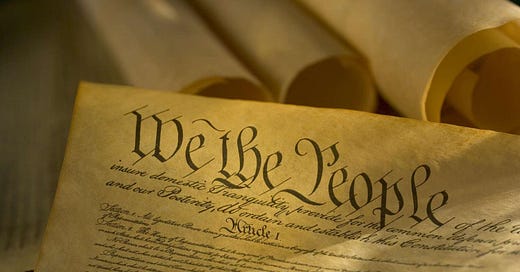Q.2 Individualism is inherent in Hobbe’s absolutist ideology. Comment.
Individualism is central to Thomas Hobbes’s absolutist ideology as articulated in his seminal work Leviathan. Hobbes theory is grounded in his view of human nature. He views humans as individuals driven by self-preservation, self-interest. And describes state of nature as war of all against all. In this state of nature life is solitary, nasty, poor, brutish & short.
To escape this state Hobbes proposes establishment of absolute sovereign through a social contract. According to Hobbes social contract theory individual’s voluntary surrender their natural right to central authority (Leviathan) for security and protection. This surrender is not motivated by good will, but by fear and a rational desire for self-preservation. He also justifies absolute power of sovereign by making social contract an irrevocable agreement. (add)
However, Hobbes emphasize on individualism and absolutism has faced significant criticism. John Locke argued that Hobbes version of social contract undermines natural rights, particularly right to property. He fails to recognize importance of limited government, rule of law. Rousseau on other hand critiqued Hobbes for not recognizing the possibility of general will (collective good/ collective sovereignty).
Contemporary examples also highlight the limitation of Hobbesian absolutism. In authoritarian regimes such as North Korea - Kim Jong Un, Russia - Vladimir Putin power is concentrated in single authority. The very individual freedom Hobbes is trying to protect is often curtailed that is leading to human right violation and social unrest. On the other hand, USA a country more towards Lockean side have system of checks and balance, protection of rights while maintaining law and order.
Though Hobbes is a champion of individualism his theory of social contract (based on absolutist ideology) seems to defy his purpose.
Q.3 Covenants without swords are but words and of no strength to secure man at all.
Thomas Hobbes assertion covenants without swords are but words and of no strength to secure man at all highlights the central role of enforcement in his theory of law and governance.
In Leviathan Hobbes argue that in state of nature life is solitary, poor, nasty, brutish & short. Individuals are self-interested and desire self-preservation. It is a situation of war of all against all. To escape this, he prescribes establishment of sword (absolute sovereign) through a covenant (a social contract). A covenant in which individual’s voluntary surrender their natural rights to the sword (the central authority /Leviathan) in return for security and protection.
Hobbes asserts that these covenants are meaningless without the power to enforce, represented by sword or sovereign authority. For Hobbes laws are the command of the sovereign and their legitimacy comes solely from sovereign’s power to enforcement them. This perspective also has significant contemporary relevance, in failed state like Somalia where government authority is weak. In absence of effective law enforcement leads to lawlessness, civil strife, insecurity. It demonstrates Hobbes point that without strong sovereign social contract cannot maintain order.
However, Hobbes views on social contract face significant criticism. John Locke argued that Hobbes version of social contract can lead to authoritarian regime. He fails to recognize importance of limited government, rule of law. Rousseau on other hand critiqued Hobbes for not recognizing the possibility of general will (collective good/ collective sovereignty).
In state of anarchy, Hobbesian views of social contract with absolute sovereign is a two-edged sword. It is helpful in maintaining law and order but can also lead to authoritarian regime.
Q.4 Comment on Hobbesian notion on political obligation.
Hobbesian notion on political obligation as described in his seminal work Leviathan highlights his pessimistic views about human nature. In state of nature, he perceives human as individuals driven by self-preservation and self-interest. And describes state of nature as war of all against all, where life is solitary, poor, nasty, brutish & short.
To escape this state Hobbes proposes establishment of absolute sovereign (Leviathan) through a social contract. According to Hobbes social contract theory individual’s voluntary surrender their natural right to central authority (Leviathan) for security and protection. This social contract is irrevocable in nature, granting sovereign an absolute power. Hobbes argue that human have a political obligation of adhering to social contract so as to avoid state of nature. Which denoted that this surrender is not motivated by good will, but by fear and a rational desire for self-preservation.
However, Hobbes emphasize on individualism and absolutism has faced significant criticism. John Locke argued that Hobbes version of social contract undermines natural rights, particularly right to property. He fails to recognize importance of limited government, rule of law. Rousseau on other hand critiqued Hobbes for not recognizing the possibility of general will (collective good/ collective sovereignty).
Contemporary examples also highlight the limitation of Hobbesian political obligation. In authoritarian regimes such as China - Xi Jinping power is concentrated in single authority. The very individual freedom, free will of citizens is often curtailed which leads to human right violation.
Hobbes notion on political obligation is product of his pessimistic views of human nature, life in state of nature. This stresses on a fact that every philosopher is child of his period.
Q.5 How would I and my fellow human beings behave if we were to find ourselves in state of nature and what this behavior tells about our innate predisposition? Thomas Hobbes. Discuss.
Hobbes enquiry of self and fellow human being highlights that his theories and ideas articulated in Leviathan are very much based on his views of human nature. In Leviathan he also discusses about state of nature and describe it as war of all against all.
In Hobbes theory of state of nature human is self-interested individual, who strives for self-preservation. Due to which life in state of nature is solitary, poor, nasty, brutish & short. There is a constant fear, violence, chaos & disorder.



